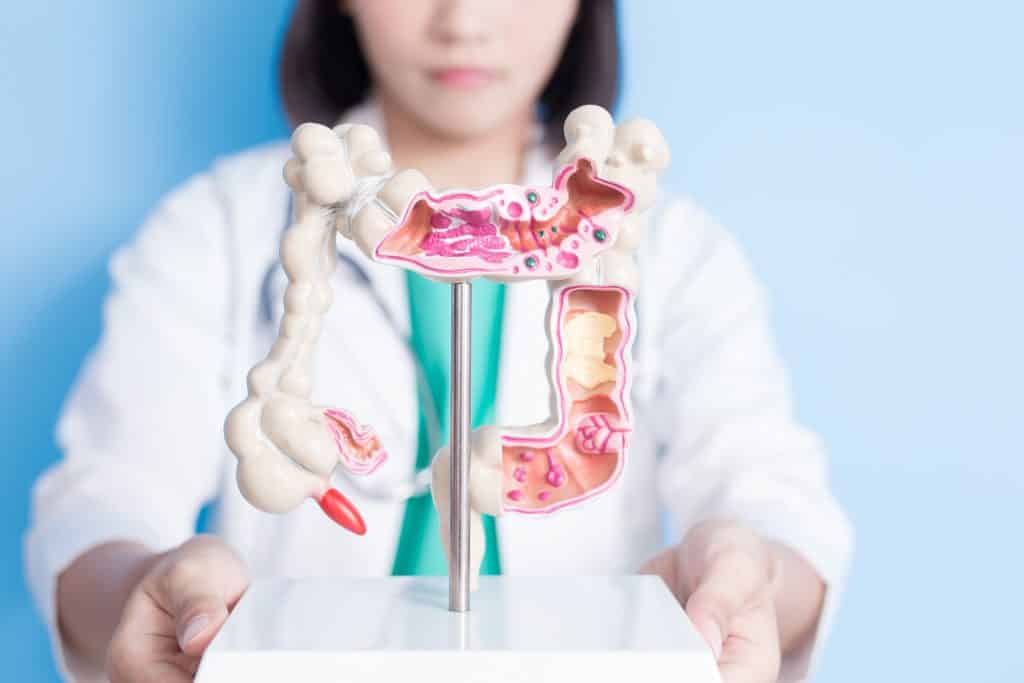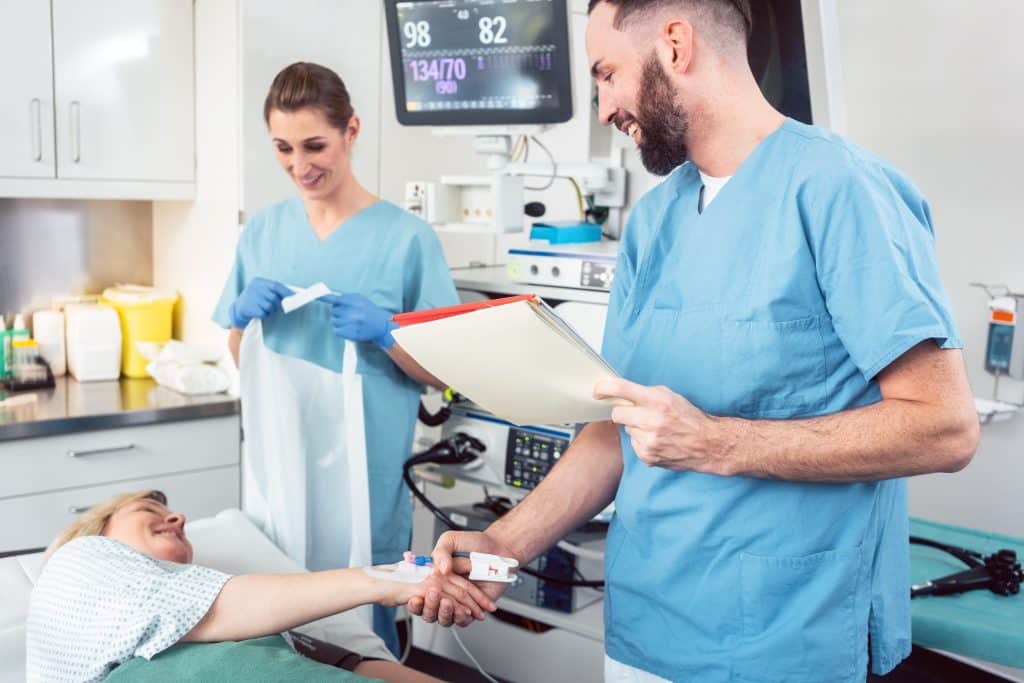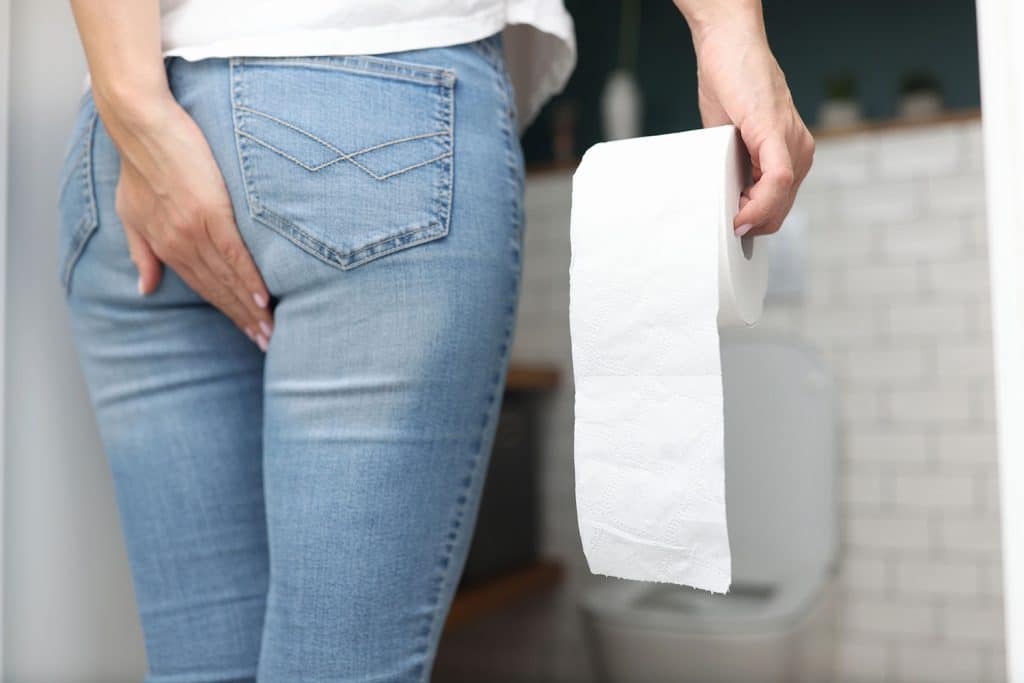Hemorrhoid symptoms are rarely discussed in public, and even in doctor offices, due to embarrassment. In reality, hemorrhoids themselves are a normal part of human anatomy, and issues only arise when they become symptomatic. While these flare-ups can be scary, uncomfortable, and sometimes painful, they are very common and usually manageable with lifestyle changes, home remedies, or when necessary, medical treatment.
This guide is a comprehensive overview of hemorrhoids so you can feel knowledgeable about what they are, what causes them, and ways to get relief.
What are Hemorrhoids?
Hemorrhoids are veins that reside inside and outside of the anus. They are organs, just like the lungs, heart, kidneys, and spleen. Hemorrhoids are venous cushions that have a blood supply (an artery that pumps blood into the hemorrhoid) and a venous return (veins that return the blood to the body). They are a part of our anatomy just like our eyes, nose, ears, and toes.
We are born with at least six hemorrhoids, three within the anus (internal hemorrhoids) and three outside the anal opening (external hemorrhoids). External hemorrhoid veins live under the skin, which is abundant in nerve endings. The internal hemorrhoids live under the mucosa, which lacks pain fibers. Internal and external hemorrhoid veins are like apples and oranges. Although they are both venous cushions, their symptoms and treatment are entirely different.
Although we have theories about the function of hemorrhoids, there is no conclusive scientific evidence of their purpose. Experts propose that the function of hemorrhoids is to aid in keeping stool from leaking out of the anus.
When hemorrhoid veins become inflamed and enlarged, they can become symptomatic. The blood pumped into the hemorrhoid is typically thin and regular. When the blood enters an inflamed hemorrhoid, the inflammatory proteins produced by the body thicken the blood, making it difficult for the blood to leave the hemorrhoid. This issue is called chronic venous insufficiency (CVI).

With CVI, there is more blood entering the hemorrhoid than returning to the body. Imagine a water balloon on a faucet, but with tubes that allow water to flow back into the system. If the water coming into the balloon becomes thick like maple syrup, more water will enter the balloon than will leave the balloon, so the balloon becomes bigger.
The inflammatory proteins cause fluid to flow into the hemorrhoid, weakening the muscle surrounding it, both of which contribute to increased swelling of the hemorrhoid. As hemorrhoids become larger, they start to cause symptoms.
Internal Hemorrhoid Symptoms
- Pain, like throbbing or aching
- Itching
- Painless bleeding
- Anorectal pressure
- Prolapse (protrude outside of the anus)
- Urgency (feeling of having to have a bowel movement, but no stool comes out)
- Mucous discharge
- Necrosis, which is when the hemorrhoids become trapped outside the anus, and the hemorrhoid tissue starts to die. This symptom is a surgical emergency.
External Hemorrhoid Symptoms
- Thrombosis, a clot within the hemorrhoid, causes pain, itching, and sometimes bleeding with clots if the hemorrhoid ruptures. This is a painful, swollen lump that looks like a purple grape. In about 95% of cases, these resolve on their own, and recurrence in the same spot is uncommon, so conservative treatment is usually all that’s needed.
- Necrosis (the external hemorrhoid becomes thrombotic, and due to the pressure in the hemorrhoid, the tissue starts to die). This symptom is a surgical emergency.
- Swelling without clotting
Causes of Hemorrhoid Symptoms
- Constipation
- Diarrhea
- Straining to have a bowel movement
- Sitting on the toilet for too long (e.g., scrolling through social media or browsing the web)
- Time: Like most tissues, hemorrhoids tend to sag as we age, which increases the likelihood of hemorrhoid symptoms.
- Chronic Venous Insufficiency
- Pregnancy

Differential Diagnosis
Other conditions cause the same symptoms as hemorrhoids.
- Inflammatory Bowel Disease, including Crohn’s disease and Ulcerative Colitis
- Polyps (bleeding)
- Colon cancer (bleeding)
- Rectal cancer (bleeding)
- Anal Cancer: Squamous cell carcinoma or anal melanoma (pain and or bleeding)
- Rectal prolapse (the whole rectal lining protrudes from the anus)
- Anal Fissure: This is a tear in the skin around the anus that causes pain, bleeding, and swelling. The swollen area can feel like a painful lump, which is often mistaken for a hemorrhoid.
Ways to Relieve Hemorrhoid Discomfort
There are a few ways to relieve discomfort with home remedies and over-the-counter therapies:
- Stay hydrated.
- Increase your fiber intake. I strongly suggest psyllium fiber, including Perfect P.O.O.P. psyllium fiber.
- Be mindful of how long you spend sitting on the toilet.
- Avoid straining to have a bowel movement.
- Warm sit baths with Epsom Salts.
- Cold compresses.
- Sitting on Granulated sugar, which helps to relieve the swelling).
- Preparation H to lubricate the area.
- Vaseline to lubricate the area..
- Recticare: A 5% lidocaine cream that uses a liposomal delivery system to help it absorb into the anal skin. It numbs the area and helps take the edge off the pain.
If at-home treatments or over-the-counter therapies don’t seem to be working, see a proctologist or colorectal surgeon for an evaluation and in-office therapy.
How to Get Rid of Hemorrhoids
Minimally Invasive Office Procedures
These are painless therapies for persistent or severe hemorrhoids:
- Hemorrhoid Banding: A small band is placed on the internal hemorrhoid to cut off its blood supply, causing it to shrink. The treatment is uncomfortable for about 24 hours and, depending on your pain tolerance, may feel painful.
- Sclerotherapy: An injection is given to the internal hemorrhoids to shrink them. This treatment is almost always painless.
- Coagulation (infrared, laser, or bipolar): These alternative techniques use heat to harden and shrink hemorrhoids. They may cause some discomfort and, in minor cases, pain.

Surgical Treatments
In advanced cases of hemorrhoids:
- Hemorrhoidectomy: The surgical removal of internal and external hemorrhoids for patients with bleeding and internal/external hemorrhoid symptoms. This treatment is done in an outpatient facility under anesthesia.
- External hemorrhoidectomy: For patients who have only external hemorrhoid symptoms. This treatment can be done in the office.
- Stapled Hemorrhoidopexy: This surgery cuts off blood flow to hemorrhoidal tissue and repositions it.
What Kind of Doctor Treats Hemorrhoids?
The type of doctor who treats hemorrhoids depends on the severity of your condition and what treatments you might need.
A gastroenterologist is a specialist in the digestive system. They handle everything from acid reflux to irritable bowel syndrome, and also hemorrhoids. GI doctors usually focus on diagnosis and non-surgical treatments. They can perform procedures like:
- Colonoscopy to rule out other causes of bleeding
- Hemorrhoid banding treatment
Because bleeding is a common symptom of hemorrhoids, many people first see a gastroenterologist, but most do not actually treat hemorrhoid symptoms.
A proctologist is a doctor who specializes in conditions of the anus, rectum, and colon. While the term “proctologist” is still used, colorectal surgeon is the more formal term. Unlike gastroenterologists, proctologists/colorectal surgeons are trained in both medical and surgical management of hemorrhoids. If you have symptomatic hemorrhoids, it is recommended to see a proctologist (colorectal surgeon).
If you need an office-based treatment, it will likely be performed during the same visit or at a subsequent follow-up appointment. If surgery is necessary, a proctologist or colorectal surgeon is trained to perform it. “Bottom” line, if you have an issue with your tushy, see a proctologist/colorectal surgeon.

How to Prevent Hemorrhoids
The best way to manage hemorrhoids is to prevent them from forming in the first place. Here’s how:
- Eat a high-fiber diet to keep stools long, solid, soft, and clean. Supplements, like Perfect P.O.O.P. psyllium fiber, are highly recommended and will help increase your fiber intake, leading to the “perfect poop”.
- Don’t strain to have a bowel movement. If nothing happens, get off the pot and return when the urge is stronger.
- Exercise regularly to improve circulation and bowel function.
- Don’t delay bowel movements when you feel the urge.
- Avoid sitting too long on the toilet. If you read on the toilet, consider placing a chair in the bathroom and sitting on it to read.
- Maintain a healthy weight.
- Practice good anal hygiene without over-wiping or using harsh soaps.
Restrictions with Hemorrhoids
You might wonder what to avoid when dealing with hemorrhoids. You should generally avoid prolonged sitting, eating spicy food, and also increase your fiber and water intake. Some intensive exercise should be avoided, but don’t skip exercise altogether if you have hemorrhoids.
Movement helps more than it hurts, but the type of exercise matters. Stick to low-impact, circulation-boosting workouts during flare-ups, and save the heavy lifting or long cycling sessions for when your symptoms are under control.
Hemorrhoid vs. Polyp
While hemorrhoids and polyps can sometimes cause similar symptoms, they’re actually very different conditions. Understanding the distinction is important because the way they’re treated and their health risks aren’t the same.
While hemorrhoids are swollen veins in the lower rectum or anus, polyps are growths of tissue that form on the inner lining of the colon or rectum. Hemorrhoids are uncomfortable but not life-threatening; polyps can present with no symptoms, and some types have the potential to lead to cancer if left untreated.
Hemorrhoid vs. Anal Fissure
Hemorrhoids and anal fissures can also be commonly confused for one another. An anal fissure is a tiny tear in the lining of the anus, often caused by passing diarrhea (most common) or a large,hard stool. Picture a paper cut, but in a very sensitive area. You can usually tell the difference because an anal fissure will feel like a sharp, tearing pain that feels like passing a shard of glass.

Hemorrhoid vs. Cancer
Seeing blood in the toilet or with or without rectal discomfort can send anyone into panic mode. One of the most common fears people have when they notice these symptoms is cancer. The truth is that hemorrhoids and colorectal cancer can share some symptoms, but they are very different conditions. Symptomatic hemorrhoid bleeding can save lives.
Colorectal cancer develops when abnormal cells grow in the colon or rectum. It often begins as small, benign pre-cancerous polyps that develop into cancerous tumors over time. Unlike hemorrhoids, colorectal cancer can be life-threatening if not caught early, which is why screenings like colonoscopies are so important.
Hemorrhoid vs. Diverticulitis
At first glance, hemorrhoids and diverticulitis may seem similar because they both can involve bleeding and bowel trouble, but they’re actually very different health issues that affect different parts of your digestive system.
While hemorrhoids develop in the lowest part of the rectum, the inside and outside of the anus, diverticulitis is a condition that develops in the wall of the colon when small pouches (diverticula) become inflamed or infected. Unlike hemorrhoids, diverticulitis can become serious if untreated, potentially leading to abscesses, perforations, or infections.
The Takeaway on Hemorrhoid Health
Hemorrhoids are a natural part of the body’s anatomy, but they can become symptomatic with prolapse, bleeding, discomfort, pain, urgency etc. Knowing that hemorrhoids themselves are normal and only problematic when enlarged, can help remove some of the stigma.
A trip to the doctor shouldn’t be avoided if you’re experiencing persistent symptoms and discomfort. Contact Thousand Oaks Proctology if you have any concerns about your colorectal health. We’re committed to providing a warm, caring, and passionate environment for every patient.

